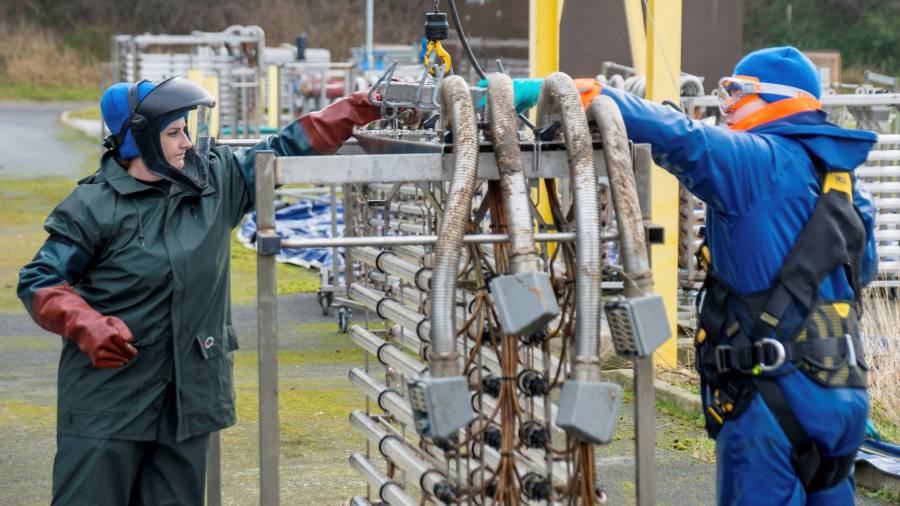[ad_1]
Consumer rights campaigners criticised the UK’s competition regulator on Wednesday for allowing water companies to pay investors higher returns than rates proposed by the industry’s own watchdog.
The Competition and Markets Authority overruled Ofwat after four water companies launched the biggest appeal against their regulator in the 30 years since the UK handed regional water supply to private monopolies.
The CMA set a headline rate of return of 3.2 per cent for investors over the next five years after the challenge by Northumbrian Water, Anglian Water, Yorkshire Water and Bristol Water.
It will mean customers pay £34 less than in 2019-20 — a smaller reduction than Ofwat’s proposals, which set a rate return of 2.96 per cent.
The CMA said its ruling, which campaigners said would benefit shareholders at the expense of customers, would allow greater investment in infrastructure.
It stressed that returns were still a third lower than the 4.67 per cent in the previous five year price-control period and lower than the 3.6 per cent proposed by the water companies.
“In coming to our decision, we have sought to balance keeping bills low with the need to maintain a good quality of service and to invest in critical infrastructure for the future,†the CMA said.
Rachel Fletcher, outgoing chief executive of Ofwat, said the CMA had “backed the principle we have been advocating, that investors must work hard for their returns, bringing customers better, more resilient services and a healthier environment for generations to comeâ€.
But Emma Clancy, chief executive of the Consumer Council for Water, said the deal would “still benefit shareholders at the expense of customers who could have received even better valueâ€.
Alistair Cromwell, acting chief executive of Citizens Advice, said: “The CMA should have gone further in cutting back the excess profits made by water companies.â€
The CMA decision comes as Ofwat seeks to respond to accusations that it has allowed water companies, now owned by a host of private equity, sovereign wealth and pension funds, to pay excessive dividends and executive remuneration while failing to invest in infrastructure.Â
On average more than one in five litres of water taken from the environment every day by water companies leaks from the mains, while sewage outflows mean just 16 per cent of England’s rivers, lakes and coastal waters are in a “high or good statusâ€, according to the EU Water Framework Directive.
At the same time, customer bills rose by 70 per cent in the two decades after privatisation, though they have dropped slightly in the past few years.
The settlement on Wednesday ends a period of instability for water companies, which had faced the threat of renationalisation from former Labour leader Jeremy Corbyn.
It will be closely watched by electricity and gas regulator Ofgem, which is facing its own appeal.
Colm Gibson, managing director at Berkeley Research Group, said the settlement will give “greater certainty to investors thinking of investing in the sector, which might trigger a number of dealsâ€.
[ad_2]
Source link





